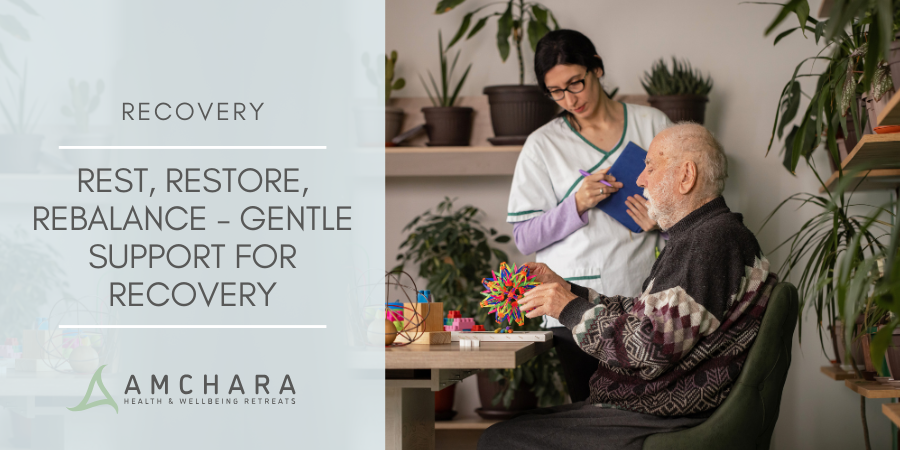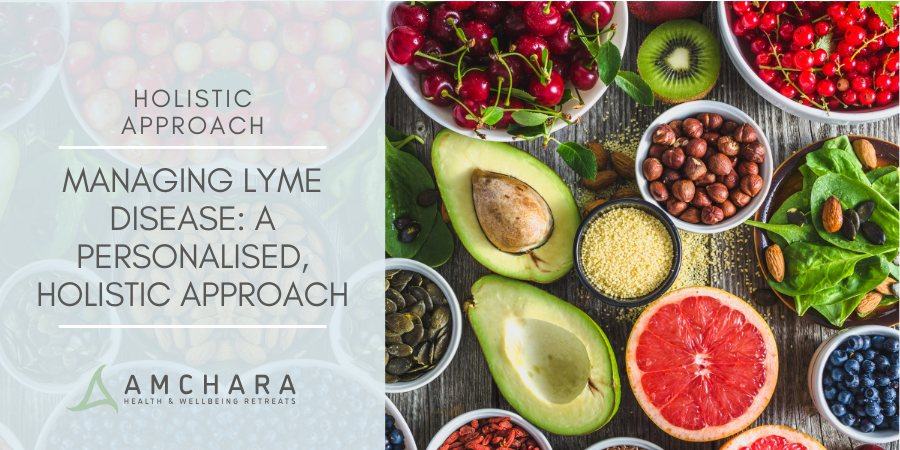Whether or not you’re a fan of making New Year’s resolutions, the dawning of a new decade feels like a great opportunity for fresh beginnings. So, to help you seize the potential, I’d like to share with you some positive steps you might want to take towards living your best life.
The importance of achievable goals
The problem with New Year’s resolutions is many of us are tired of making them, failing in the first couple of weeks, feeling bad and then forgetting all about them until the following year. The trick is to choose to make small changes which then become cemented in your daily lifestyle.
Changes for good don’t have to be enormous or earth-shattering – lots of small but sustainable changes are greater than the sum of their parts. Achievability is the key. This way you’ll find it far easier to keep the promises you make to yourself.
#1. Be kind to yourself
In 2020, I’m going to make self-care a priority.
Self-care means focusing on making time for activities to support your wellbeing. Many people struggle with self-care, seeing it as synonymous with selfishness, but the two are very different. Self-care replenishes your own resources without negatively affecting another person’s.
Self-care is different for everyone. It could mean taking a long bath with Epsom salts, scheduling time during your day to read a good book, having a massage, going to an art class or just saying no to something you know deep down you don’t want to do.
Effective self-care can significantly improve your wellbeing. Try to do something small for yourself every day. My self-care priority? I aim to spend time outside in the open air every day, even if only for a few minutes.
#2. Laugh more
Modern life can be stressful. Times of change can feel threatening, and many people can feel powerless because of financial worries, job insecurity or larger, worldwide problems. The physical act of laughing can reduce levels of stress hormones, increase feel-good endorphins, decrease blood pressure, control inflammation and even positively affect your immune system (1).
A good laugh can have lasting effects – in one study, watching a funny video for as little as one hour resulted in changes to the stress response for as long as 12 hours afterwards.
We’re all individual with regards to what makes us laugh, but if you can’t find anything funny around you why not join a laughter yoga class? Even if it feels forced at first, remember simply the physical action of laughing, even at nothing in particular, produces beneficial effects in itself.
Seek out friends who make you laugh or take time out to watch an uplifting, funny film.
#3 Sit up straight
As a nation, flexible working arrangements have resulted in more and more people working remotely at home, in cafes or on public transport. This can mean you’re spending a good part of your day slouching at tables which aren’t the correct height for you, balancing your laptop on your knees or even hunched on a sofa, leading to muscle stiffness, back and neck pain and headaches.
This is something I frequently ignore so I’m going to be kind to myself this year and take steps to sit properly while I’m working.
Your screen should be at least 20 inches from your eyes, with the top of the screen just below the height of your eye-line. When sitting, your hips and knees should be at 90 degrees to the floor, with your feet flat on the floor or a footrest. If you work in an office, insist on a workplace assessment.
It’s important to change your position regularly if you work for long periods at a computer. Set an alarm to remind you to get up at least every 45 minutes, preferably more frequently. Take at least three minutes for a break and do a couple of stretches.
Don’t be tempted to work on your devices late into the evening, even if you’re simply checking your bank statement or surfing social media – the light emitted from a computer screen can disrupt your sleep and negatively impact your productivity the following day.
#4 Stress less
Stressing less is easier said than done, but stress and anxiety can adversely affect your health.
Although you have no control over events which happen to you, you can learn to control how you respond to stressful situations.
Choose to re-educate yourself as to how you respond to stress by using techniques such as yoga, meditation or tai chi. Stress reduction strategies are very personal – what works for me will not necessarily work for you.
One great way of reducing the stress reaction is simply by breathing. It’s an often overlooked function, but if you consciously slow down and deepen your breathing you can lift your body out of flight-flight-freeze mode, a state where you are constantly geared to react to stressors, and instead shift into rest and digest mode, enabling you to recuperate.
Stress can build up and up and appear insurmountable. According to one study, three quarters of us in the UK have felt overwhelmed by or unable to cope with stress in the last year (2). Almost half of these people reported choosing unhealthy food options because of their stress, and a third increased their alcohol consumption as a result. So, we can see how stress can impact on your good intentions.
Personally, my goal is to worry less about things I cannot change.
#5 Leave your phone at home
Does the idea of leaving the house without your phone fill you with horror? I guarantee that if you do this, although at first you may be fretting about missing out on calls and emails, after a while you’ll find you’re far more present in the moment. You’ll notice things around you like birds singing, clouds in the sky or even simply a smile on someone’s face. You most likely wouldn’t have noticed any of these if, like me, you tend to bury yourself in your phone.
When you get home you may be pleasantly surprised to find you haven’t actually missed anything at all!
If you cannot leave your phone at home because of caregiving responsibilities, then put it away in a pocket or bag and resolve not to look at it, unless it’s really necessary.
Nowadays we have become prolific multitaskers, partly encouraged by the round-the-clock availability made possible by mobile phones. This can reduce attention span, while constantly juggling many competing demands increases stress levels.
The average person in the UK checks their phone over 10,000 times per year.
Social media can be especially distracting, making us feel we need to be constantly available. Although social media has its place and can be beneficial by making us feel more connected and empowered, it can also be overwhelming and has been found to lead to loneliness, low self-esteem and isolation. Negative comments online can adversely affect mood.
Studies have linked increasing mobile phone and social media use with stress, anxiety and depression (3) – in one survey, 33% of 18-24 year-olds stated they were giving up some form of social media for good.
How about limiting yourself to fifteen minutes of social media per day? If you can’t manage that, consider phased withdrawal – screen time and social media are addictions like any other.
#6 Reassess your relationship with coffee
We’ve been drinking coffee since the 15th century, and in the UK we consume over 95 million cups each day.
A wealth of scientific studies have linked coffee to both poorer health, such as insomnia, increased stress, high blood pressure and reflux, as well as improved health, including protection from Type 2 diabetes, Alzheimer’s disease and cardiovascular disease (4).
These seemingly paradoxical results may be because personal genetics mean everyone processes caffeine differently. Some of us are able to give up coffee without a second thought, while others, including me, become jittery and headachy if we miss our beloved cup.
Another genetic variation determines how quickly we metabolise coffee – some people can drink it straight before bedtime with no ill effects, whereas others will be tossing and turning into the small hours if they have a cup of coffee after midday.
So if you are an addict or a coffee insomniac, resolve to stay in charge of your coffee consumption rather than letting it control you. If you rely on coffee to prop up your energy levels, it’s likely to be putting strain on your stress glands and interfering with your blood sugar control.
If you‘re one of those people who can tolerate coffee with no ill effects, then by all means enjoy your cup. But remember supersized lattes, particularly those with added syrup, can be a significant source of calories and sugar.
#7 Dip your toes into fasting
Hardly a week goes by without the publication of another study demonstrating the benefits of fasting. As a way of encouraging the body’s process of cellular housekeeping, otherwise known as autophagy, it’s not surprising fasting is linked with positive health implications.
Fasting may sound difficult to do, yet it’s surprisingly easy to fit into your life.
One type of intermittent fasting, known as time-restricted eating, lengthens the time you’re not eating by utilising night-time hours, when we naturally fast. Confining eating to an 8-10 hour window simply by having your evening meal earlier and eating breakfast later in the day – so increasing the time between these meals to around 16 hours – can bring many health benefits. These include reduction of belly fat, cholesterol and blood pressure.
Best of all, intermittent fasting doesn’t need to be undertaken every day – any opportunity for the body to clear out its debris can help boost cellular function. I intend to have my evening meal around 7pm and eat my breakfast towards 11am a couple of times per week.
Takeaway
Hopefully you’ll be inspired to make some changes for good in 2020. But remember modifications in nutrition and lifestyle always bring maximum benefits when they’re carried out with a positive outlook. Don’t feel you’re being cheated out of something enjoyable, think about these New Year changes as small positive steps.
If you’re successful in making a change, however small, congratulate yourself. Try not to be hard on yourself for falling short of your own expectations – remember #1 and be kind to yourself.
Inspired to make a few changes to your health in the New Year by being kinder to your body and mind? Then a stay at an Amchara retreat can help you cement these practices into your lifestyle, giving a great kick-start to a healthy New Year.
We are all unique so not all of the above strategies will appeal to you. To discover more about which nutritional and lifestyle strategies are most suited to your genetic inheritance and personal health history, a one-to-one consultation with an experienced Amchara Personalised Health practitioner can help you discover your specific needs.
Gaining your insight helps us to help others.
Did you find this article useful?
We would love to know your thoughts.
Let us know your favourite New Year healthy lifestyle goals.
Read this next:




